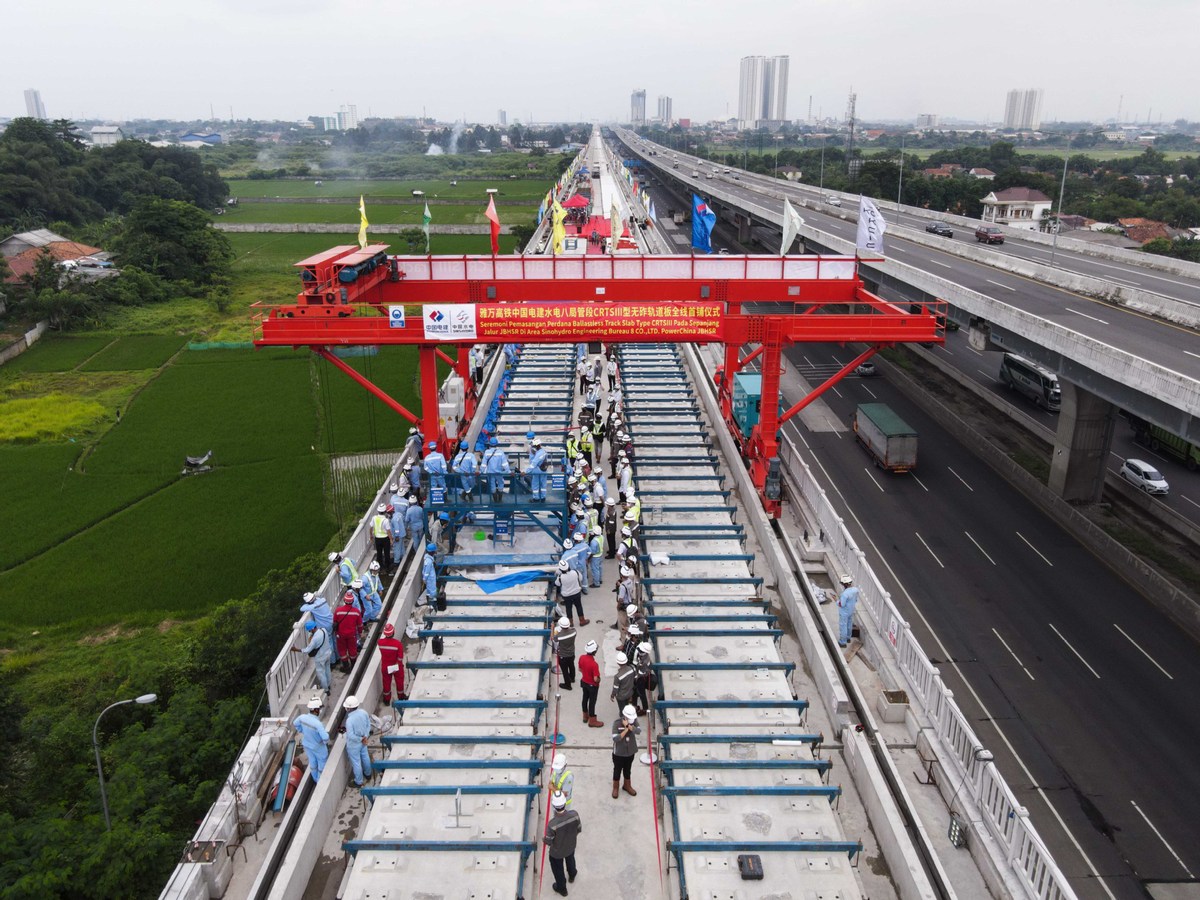Saudi-Chinese cooperation can help nudge climate laggards, experts say
A reaffirmation of cooperation on climate initiatives between China and Saudi Arabia can benefit neighbors in Asia and the Middle East that are lagging in their commitments, experts said.

The photo taken on Dec 29, 2021 shows the construction of the Jakarta-Bandung high-speed railway, a Chinese-Indonesian partnership project. [Photo:Xinhua]
Saudi Arabia is the largest producer in the Organization of the Petroleum Exporting Countries, or OPEC, and China has increased its demand for oil over the past decade.
Glenn Wijaya, an adviser to the Center for Indonesia-China Studies, said the climate cooperation between China and Saudi Arabia is a welcome initiative that will have a significant impact on how countries in Asia and the Middle East achieve goals set out in the Paris Agreement-the global climate change treaty adopted in 2015.
"The China-led Asian Infrastructure Investment Bank has also adopted the Sustainable Development Bond Framework-basically helping its members to meet their commitments under the Paris Agreement and the United Nations Sustainable Development Goals," Wijaya said.
In a phone call earlier this month, Chinese President Xi Jinping and Saudi Arabian Crown Prince Mohammed bin Salman Al Saud discussed strengthening the synergies between the China-proposed Belt and Road Initiative and Saudi Arabia's economic diversification blueprint, Vision 2030.
Xi also asserted support for Saudi Arabia's Middle East Green Initiative, launched last year, and welcomed the Arab nation's participation in the Global Development Initiative, unveiled by Xi at the UN General Assembly in September.
"The changing global geopolitical dynamics will bring (Saudi Arabia) closer to China in a wide range of climate change-related sectors," said Salman Zafar, founder of EcoMENA, an environmental think tank in Doha, Qatar.
The Saudi-Chinese climate cooperation is based primarily on investments and technology transfer in the solar energy sector, he said, citing the partnership between Saudi Arabia's ACWA Power and China's Silk Road Fund, an infrastructure investment fund.
In 2019, the Silk Road Fund signed an agreement to purchase a 49 percent stake in Saudi Arabian company ACWA Power, whose development portfolio includes a number of renewable energy projects.
Zafar also notes oil producer Saudi Aramco's close cooperation with China on hydrogen energy, which is "definitely going to speed up" Saudi Arabia's energy transition.
According to the Green Future Index 2022, countries that made progress on building a green future were mostly developed nations.
At least 16 European countries made it to the top 20. China, which leapt to 26th place from 45th in 2021, was recognized for making notable gains in greening its society.
Slower progress
However, Saudi Arabia and the United Arab Emirates-ranked 51 and 41, respectively-are among a group the index labeled as "climate laggards" for making "slow or uneven progress or commitment "toward building a green future. Others in this group include Vietnam, Pakistan, Australia and Thailand.
The "climate abstainers" category-for countries that will be "left behind in the green future "through lack of progress and commitment-includes countries such as Indonesia, Malaysia, Turkey, Qatar and Argentina.
"The Green Future Index 2022 highlights that certain countries, such as Indonesia (which is) heavily reliant on foreign investment, particularly in this trailing far behind in terms of implementing green policies," said Wijaya.
"Many developed countries in the West are undeniably investors in projects in countries that are regarded as laggards."
Xinhua contributed to this report.


